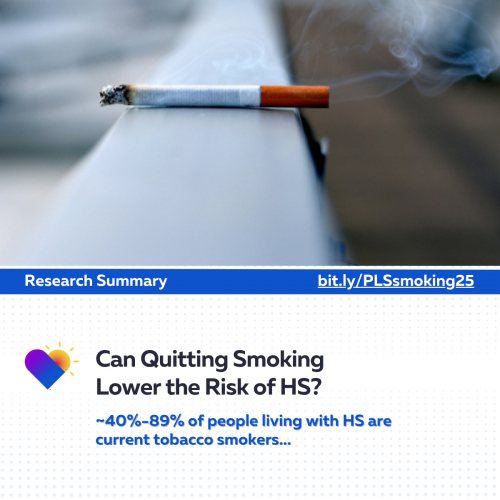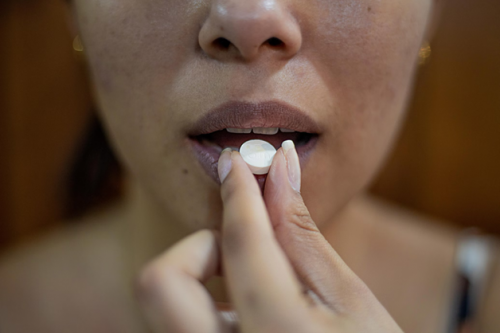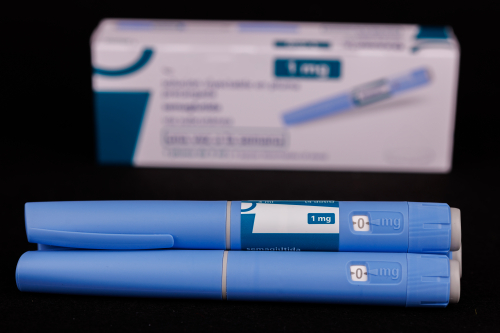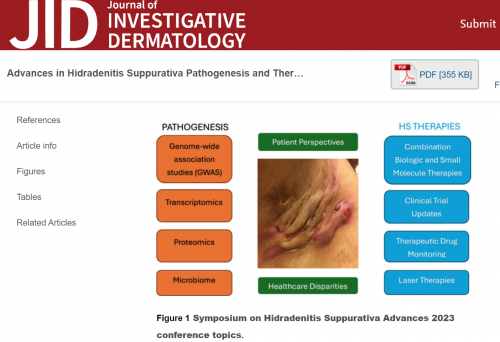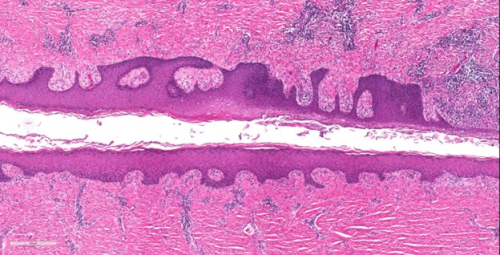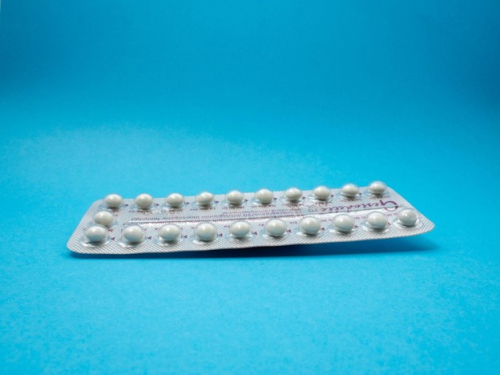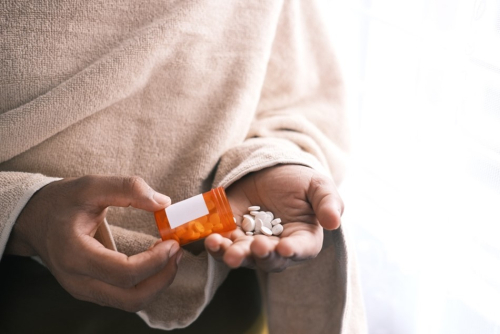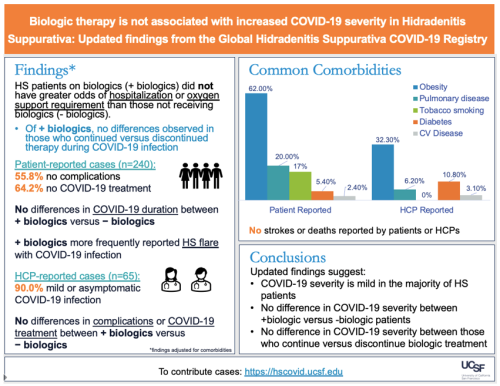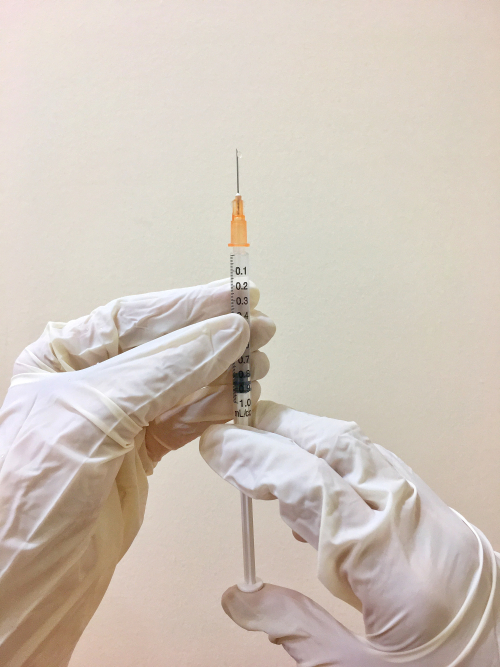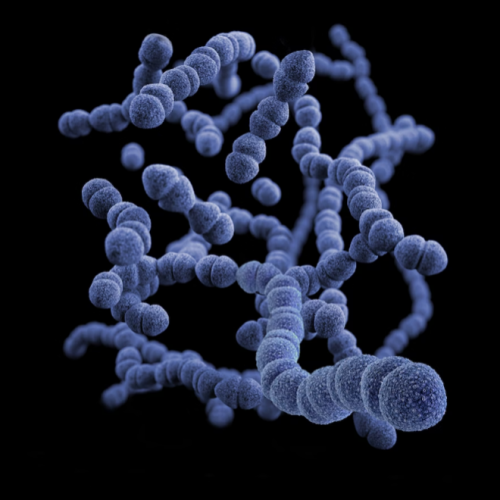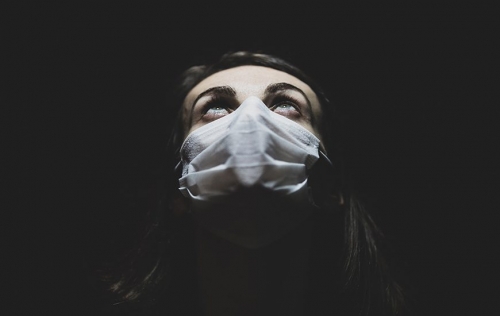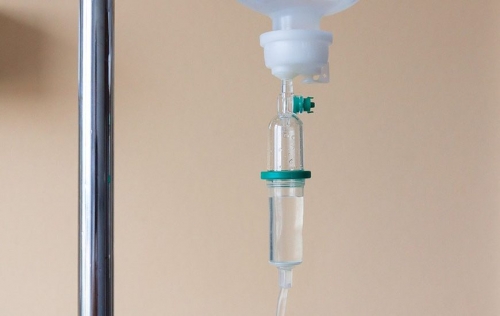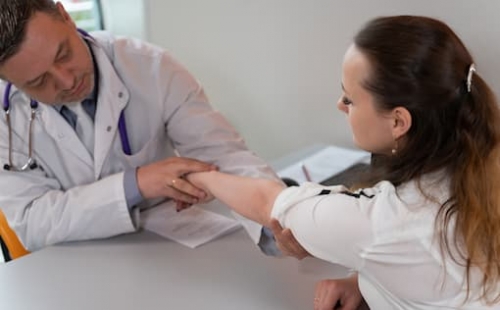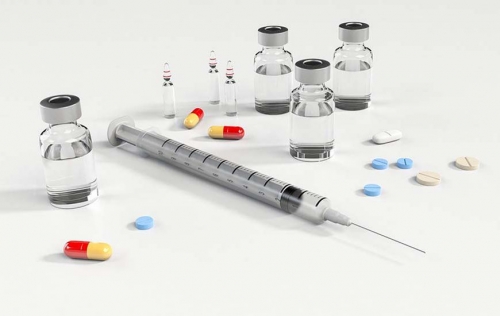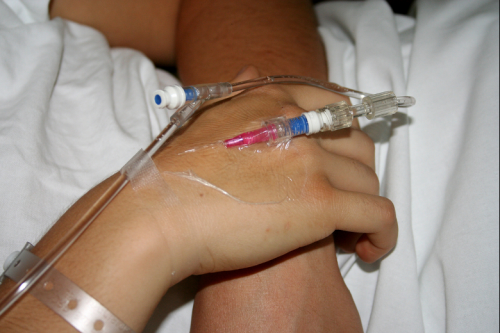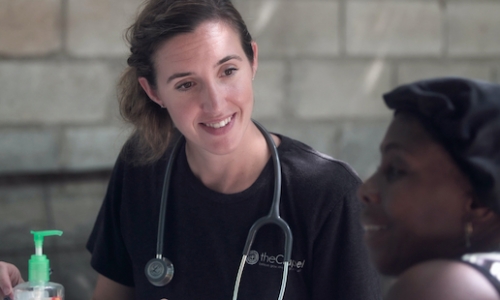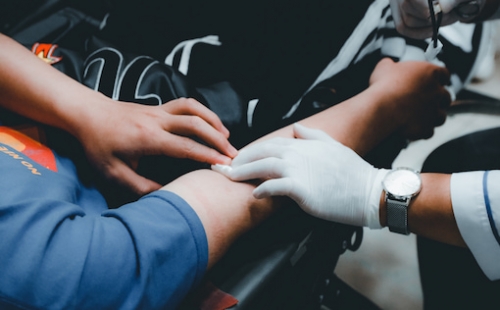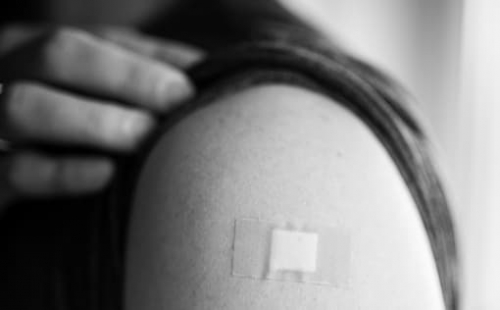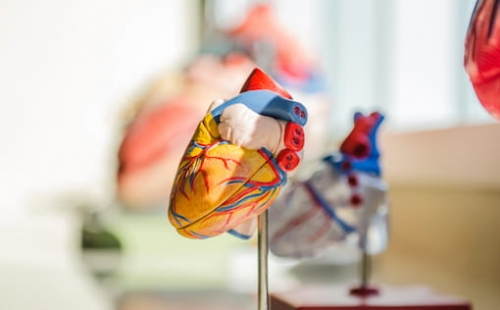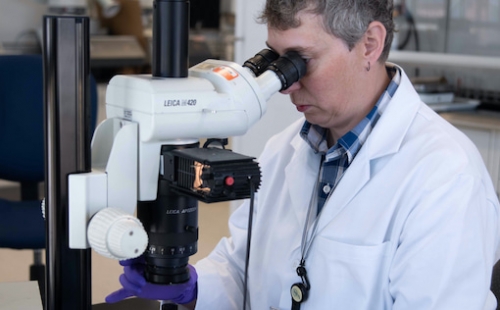Can Quitting Smoking Lower the Risk of Hidradenitis Suppurativa?
A new study of more than 6 million people shows that quitting smoking can cut the risk of hidradenitis suppurativa by about one-third—but the benefits appear only after staying smoke-free for at least three years. Relapsing, however, brings the risk right back up.
Spironolactone for Hidradenitis Suppurativa: A Game-Changer for Women of Childbearing Age?
Could spironolactone be a game-changer for women with early-stage HS? A recent study found that while only 1 in 5 women of childbearing age saw improvement with the hormone-blocking drug, those with milder disease and earlier treatment were far more likely to benefit. This research offers valuable insight into tailoring HS treatment for patients most likely to respond.
Deroofing – Safe and Effective for HS Patients
A new study highlights the safety and effectiveness of deroofing—a surgical treatment for hidradenitis suppurativa. Among 44 patients, only 12% of lesions returned within a year, and most reported less pain and better quality of life. While further research is needed, these results suggest deroofing may be a valuable option, even alongside systemic therapies.
Semaglutide for diabetes, weight loss, and… Hidradenitis Suppurativa?
Could a popular weight loss and diabetes drug also help treat hidradenitis suppurativa? See what researchers discovered about semaglutide’s surprising potential.
Links Between Plastics Use, Processed Food, Sweating, and Hidradenitis Suppurativa
Could everyday habits like diet, plastic use, and sweating play a role in HS? This study uncovers intriguing connections that may shape our understanding of the condition.
Hidradenitis Suppurativa and Maternal and Offspring Outcomes
How does Hidradenitis Suppurativa during pregnancy impact the health of mothers and their newborns both immediately and long-term?
Advances in HS Pathogenesis and Therapies from SHSA 2023 Published in the Journal of Investigative Dermatology
SHSA 2023 Findings Published in JID
Benefits of the Mediterranean Diet and Physical Activity in HS
Can Diet and Physical Activity Improve Your HS?
Barriers to Accessing Care for HS
Patient interviews highlight challenges in accessing HS care
Genetic Variants Associated with Hidradenitis Suppurativa
Two genes identified as likely associates with HS
Assessing the Impact of HS on Work Productivity
Study demonstrates decrease in work productivity due to HS
What is Pain Really Like for People with HS
Initial HS lesions present with itch, but can progress to pain.
Average Time Patients Stay on Biologic Treatment
Study Shows Treatment of HS is Challenging
Birth Control and HS
Small study shows birth control pills may be useful in the treatment of HS
Benefits of Finasteride in Women with HS
Can finasteride help control hidradenitis suppurativa in women?
Biologic Therapy Not Associated with COVID-19 Severity
Biologic Therapy Not Linked to COVID-19 Severity in People With HS
Adalimumab (Humira) in combination with surgery is safe and effective to treat hidradenitis suppurativa.
This study explored whether it was safe for patients to undergo skin surgery while on adalimumab.
A new treatment option for tunnels in HS
An Open-Label, Prospective, Pilot Study of Hypertonic Saline for Hidradenitis Suppurativa.
View the latest research summary from the HS Foundation
A number of medical conditions are associated with HS - what are they?
Factors that affect delayed HS diagnosis in children and teenagers
What happens if hidradenitis suppurativa (HS) diagnosis is delayed in children?
HS surgeries associated with high satisfaction, brief recovery and tolerable pain
Considering surgery for treating hidradenitis suppurativa (HS) can feel intimidating, especially because it can be hard to know what to expect.
Negative Impacts of Hidradenitis Suppurativa in Pregnant Women
Women with HS were more likely to have health problems before pregnancy compared to women without HS.
A Deep Look at the Bacteria Living in Patients with HS
This research study explored the differences in the microbiome between unaffected individuals and those with HS by obtaining bacterial swabs from the skin, inside the nose, and stool from both groups.
Can Hidradenitis Suppurativa Affect Pregnancy?
Research on how HS affects pregnancy is limited, which is what led researchers at Penn State College of Medicine to perform a study that compared pregnancy outcomes in patients with and without HS.
How should Pregnant and Nursing Mothers manage Hidradenitis Suppurativa?
With a growing need to properly manage HS in pregnant and nursing mothers, here we discuss the article “Management of Hidradenitis Suppurativa in Pregnancy” published in 2017 that provides the most up-to-date information.
How clear is the link between Hidradenitis Suppurativa and Inflammatory Bowel Disease?
Some research studies showed the HS and IBD are more likely to happen together, but two other studies did not show a link between them. The goal of this study was to combine all of the best studies and try to clear up whether there is a link between HS and IBD.
How are Emergency Departments treating pain in Hidradenitis Suppurativa?
For many patients with Hidradenitis Suppurativa (HS), pain is a problem that can lead to visits to the Emergency Department (ED).
Are people willing to use teledermatology for Hidradenitis Suppurativa care?
In new, yet unpublished data from a project by Joslyn Kirby, Ashley Eichelberger, Melissa Butt, Colleen Silva, and Aretha Mosley of Penn State Hershey School of Medicine, patients shared their thoughts and experience about long-distance dermatology visits.
Is COVID more risky for people treated for an immune disease?
In a study led by Dr. Rebecca Haberman of New York University, a group of doctors studied whether people being treated for immune diseases had more severe COVID.
What is the right dose of infliximab for Hidradenitis Suppurativa?
Infliximab is an intravenous (IV) medication that can help Hidradenitis Suppurativa (HS). The dose and timing of infliximab vary. The authors determined which dose was the best when starting treatment for HS.
Anything new out there to help treat my HS?
In recent years, research has led to a deeper understanding of immune imbalances that may lead hidradenitis suppurativa (HS).
A new way to measure the extent of patients’ hidradenitis suppurativa
This study was done by researchers in the U.S.A. to find how well clinicians could measure HS using a different approach.
New drug shows promise for Hidradenitis Suppurativa treatment
An early study for bermekimab shows improvement in Hidradenitis Suppurativa (HS) activity and pain scores while demonstrating safety.
A study into the risk of serious infections in people with hidradenitis suppurativa
This study's aim was to determine if associations between HS and various serious infections exist, using the National Inpatient Sample, a USA database of inpatient hospitalizations, between the years 2002 and 2012. The study also looked into the cost of care and length of stay of HS patients with serious infections.
Pain perception and depression in patients with hidradenitis suppurativa
HS causes pain, but few studies have looked at this aspect. The authors aimed to study pain in patients with HS.
A review of use of the word ‘flare’ in hidradenitis suppurativa studies
HS lesions can come-and-go or last for months or years. HS can have times where it is worse than usual. These have been called ‘flares’. To measure flares in future studies, a definition for a flare is needed. This study was done to find out how flares were defined in past studies.
Most Hidradenitis Suppurativa patients improve with infliximab, if the dose is high enough
Some Hidradenitis Suppurativa patients improve when they receive infliximab, but we don’t know the proper dose of infliximab to give. This research asked whether high-dose infliximab helps Hidradenitis Suppurativa patients.
Inter-rater reliability and agreement hidradenitis suppurativa instruments
This study aimed to find out how consistently 12 HS-experienced dermatologists would score 24 patients with HS, using nine different instruments.
Investigation of the skin microbiome
Researchers from Sweden, Ireland and the UK looked at the difference between the results of swabs and actual biopsies (tissue samples) of the skin.
Association between HS and hospitalization for psychiatric disorders
The researchers of this study are based in U.S.A. and aimed to find out if hidradenitis is linked with higher likelihood and costs of mental health disorders.
Inter- and intrarater reliability of Hurley staging
This study, which was an international co-operation between departments in Germany, Denmark and Poland, was designed to check the agreement between different dermatologists, including those in training, on their rating of the stage of HS in 5 different patients on two separate occasions.
Impact of HS on work loss, indirect costs and income
This study aimed to find out how the work life of people with HS was impacted compared to similar people without HS.
Pyrin mutations in complex hidradenitis suppurativa
This study, performed by researchers from Turkey and Germany, looked at the role of a gene called MEFV gene in HS, using a group of 119 people with the disease.
What’s the risk of lymphoma in people with HS?
This study was done to look at whether the inflammation from HS might increase the chance that someone’s immune system could go off the rails and cause lymphoma.
Cost-savings in hidradenitis suppurativa
This study, undertaken at the ATTIKON University Hospital of Athens, Greece, suggests adalimumab could be a cost-effective and efficient treatment for HS.
BAD guidelines for the management of HS (acne inversa) 2018
The British Association of Dermatologists commissioned a HS guideline development group composed of information specialists, a HS patient and carer, and UK clinicians including dermatologists, a dermatology nurse, plastic surgeon and general practitioner (GP). The group, based in the UK, were asked to produce treatment recommendations based on a systematic review of the evidence.
Does Hidradenitis Suppurativa cause skin cancer?
Longstanding Hidradenitis Suppurativa (HS) can be associated with other complications, such as intestinal problems and skin cancer.
Patients with self-reported HS in a cohort of Danish blood donors
The unique nature of HS makes it possible to diagnose the disease using questionnaires.
Illness perceptions and health outcomes in HS
In this study from a specialised HS clinic in a large UK hospital, dermatologists collaborated with psychologists to establish for the first time, the relationships between illness perceptions and health outcomes.
Complement in hidradenitis suppurativa
This is a study on the pathogenesis (causes) of hidradenitis suppurativa (HS).
Imbalanced Th17/Treg axis in hidradenitis suppurativa
The aim of this study from the German Universities of Osnabrück and Munich was to clarify whether obesity and smoking promote the Th17/Treg imbalance.
Hidradenitis suppurativa treated with secukinumab
Medications targeting small proteins called cytokines could provide a possible treatment approach for HS in the future.
Population-based Clinical Practice Research Datalink study using algorithm modelling to identify the true burden of hidradenitis
Our study team based in the UK aimed to use UK electronic data recorded by General Practitioners (GPs) to identify known and previously undiagnosed cases of HS.
Prevalence of hidradenitis suppurativa among patients with Down syndrome: a population-based cross-sectional analysis
In this study, we evaluated the commonness of hidradenitis suppurativa within a large group of patients who had Down syndrome, and we used another groups of patients that did not have Down syndrome to compare findings.
Incidence of hidradenitis suppurativa among tobacco smokers: a population-based retrospective analysis in the U.S.A.
Despite a common belief that tobacco smoking increases the risk of developing the disease, the evidence linking the two is controversial.
Towards global consensus on core outcomes for hidradenitis suppurativa research: an update from the HISTORIC consensus meetings
This study aimed to find out what clinical trials for HS should measure, such as symptoms (e.g. pain, itch), physical changes (e.g. skin redness or swelling), or impact on people's lives (e.g. quality of life).
Interleukin-36 in hidradenitis suppurativa
Scientists from Germany investigated whether a cytokine called interleukin-36 (IL-36) might be important in hidradenitis suppurativa (HS).
A phenotype combining hidradenitis suppurativa with Dowling–Degos disease caused by a founder mutation in PSENEN
In this present study, we showed a new genetic defect in PSENEN that can cause two diseases at once: Dowling-Degos disease and hidradenitis suppurativa.
Hidradenitis suppurativa and electrocardiographic changes: a cross-sectional population study
The aim of this study from Denmark was to investigate this possible cardiovascular burden associated with HS influence on the heart's electrical activity.
Keratinocytes and neutrophils are important sources of proinflammatory molecules in hidradenitis suppurativa
This study, from Germany, sought to identify the cellular sources of IL-17 in HS, and looked at a range of other factors that might contribute to the development of the disease, including the presence and source of other proteins that are involved in HS.
Diagnostic delay in hidradenitis suppurativa is a global problem
In this study, 517 patients with HS and 516 patients with another skin disease, psoriasis, from 24 countries were asked about the time it took to first see a doctor and then receive a diagnosis.
The Hidradenitis Suppurativa Priority Setting Partnership
According to the authors of this study, HS has been relatively neglected by society and medical research funding bodies, resulting in a lack of evidence to guide HS care. A Priority Setting Partnership (PSP) for HS was established following a model created by the James Lind Alliance which helps to bring patients, carers and clinicians together to identify and prioritise for research the treatment uncertainties which they agree are the most important.


